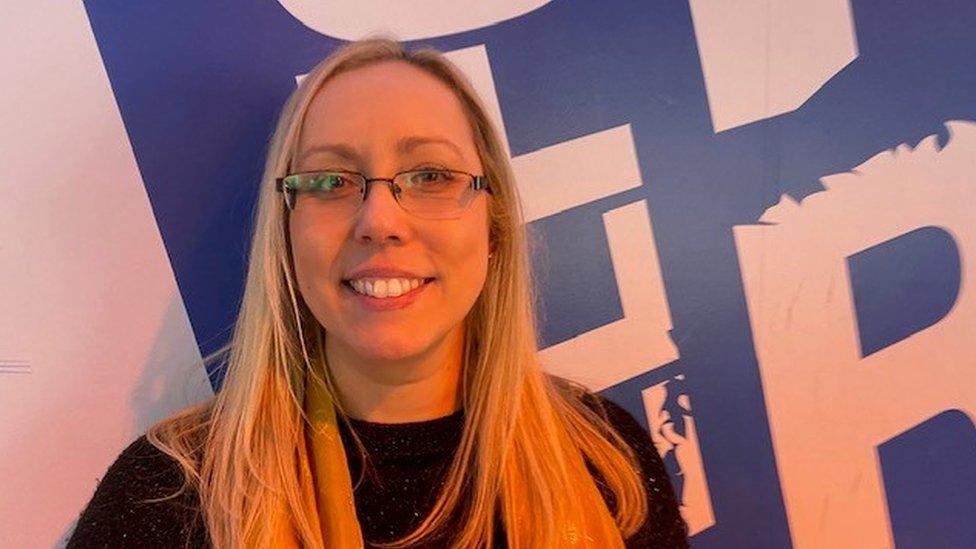Shropshire's inclusive figure skaters going for gold
- Published
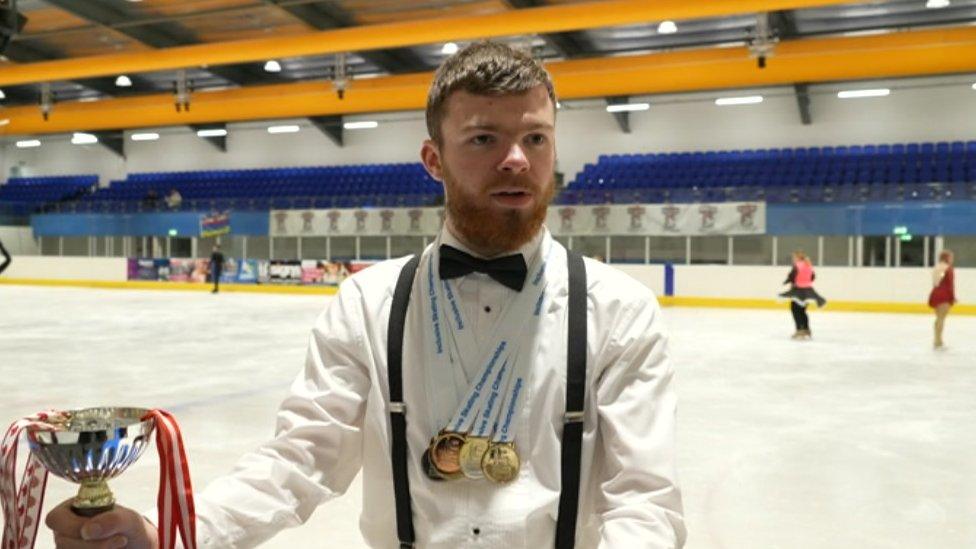
Cameron Sargent said figure skating helps him feel "free"
A team of inclusive figure skaters say they want to encourage people with disabilities to take to the ice after winning big at the world championships.
The group, Inclusive Skating, trains at Telford Ice Rink in Shropshire with sessions designed to allow people with additional needs to take up the sport.
The squad brought home numerous medals from the Inclusive Skating Virtual World Championships in December.
Coach Sarah Carter said her team "makes me proud every day".
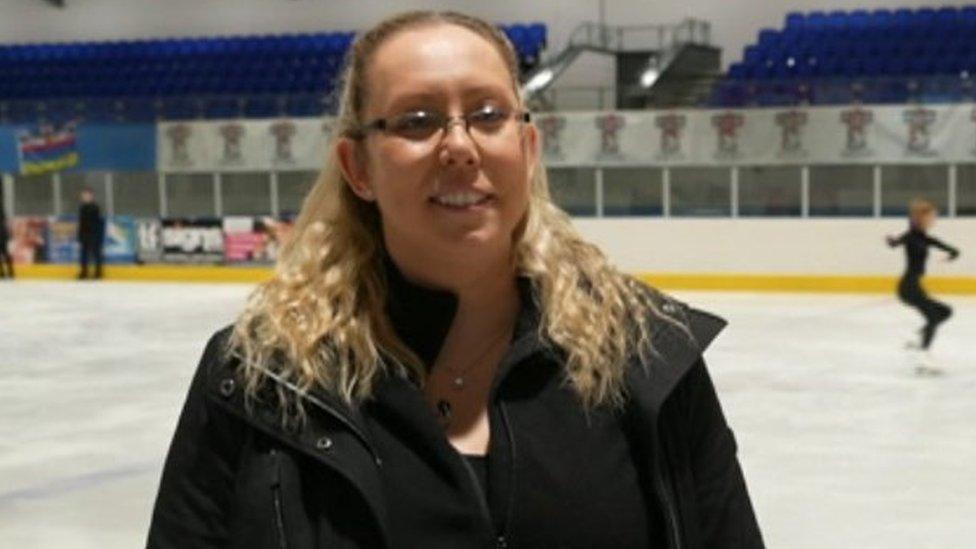
Team GB coach Sarah Carter said she is "proud" of her team
The group provides a safe space for people with additional needs and their families to enjoy ice skating.
Ms Carter, the Team GB Head Coach for inclusive skating, said she had purposely put together the team to include people with additional needs as well as able-bodied skaters "so they all mix together".
"The whole point of inclusive skating is that it is inclusive of everybody," she said.
"Skating is for everyone."
Her first pupil was 20-year-old Cameron Sargent who is now a multiple world champion after winning the top prize in free skate, free dance and pairs.
Mr Sargent, who has autism, anxiety and a learning disability, first took up the sport when he was seven.
"I just like the thrill of gliding across an icy surface because it makes me feel free," he said.
"It doesn't make me feel anxious at all."
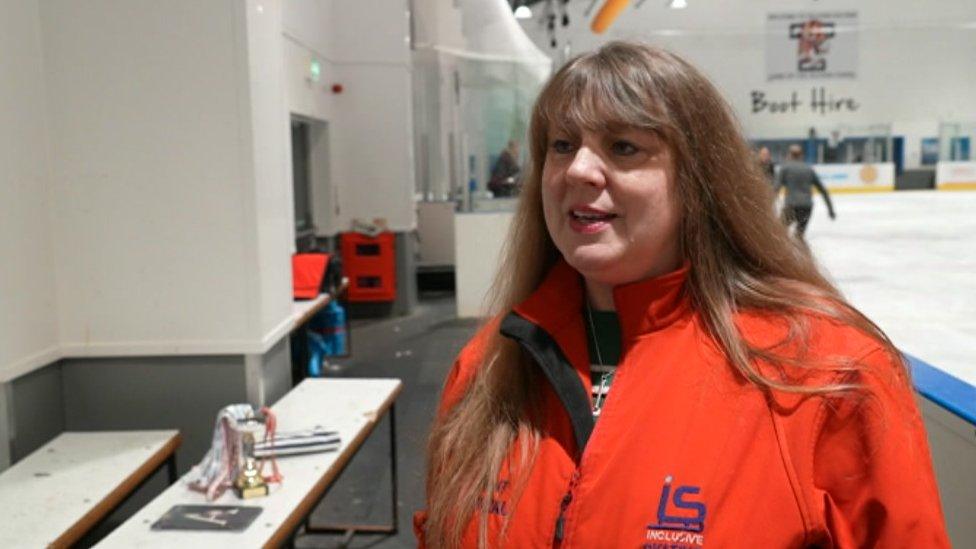
Alison Sargent said skating has improved Cameron's confidence
His mother, Alison, added: "We struggled to find what kind of activity he could do.
"One day there was skating on the television in the background and he suddenly said: 'That's what I want to do'.
"He loves that technical aspect and the fact he can achieve different levels. There is so much to learn and he loves that."
She said her son sometimes struggled to make friends but skating had made "the world of difference", particularly when it came to improving his confidence.
At the virtual world championships in December, where competitors had to send in video footage of their routines for judges, the team bagged 56 medals as well as 122 top ten placements.
'Anything is possible'
Also bringing home medals was Vicki Smart, who has optic nerve atrophy which restricts her peripheral vision, and nystagmus which affects her depth perception and spatial awareness.
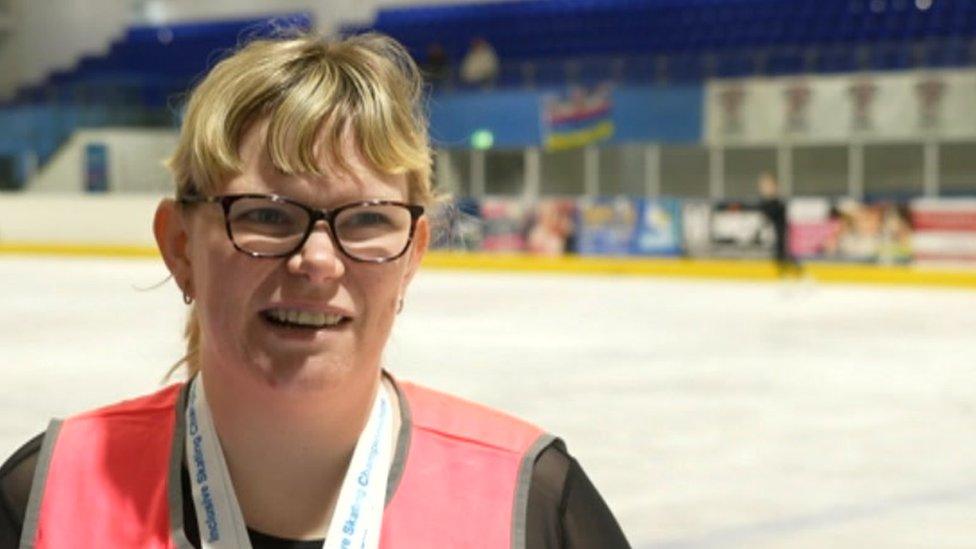
Vicki Smart, who has a visual impairment, won three bronze medals and one gold
"It is just showing what is possible," she said.
She hopes by learning something "that most people shy away from and wouldn't dare try" she will help challenge "what people think is possible for people with visual impairments and other additional needs".
She is also looking towards coaching other skaters in future.
"[It is about] sharing the love for the sport and showing people that even if you have some additional needs, anything is possible," she said.

Follow BBC West Midlands on Facebook, external, Twitter, external and Instagram, external. Send your story ideas to: newsonline.westmidlands@bbc.co.uk, external
Related topics
- Published2 January 2023
